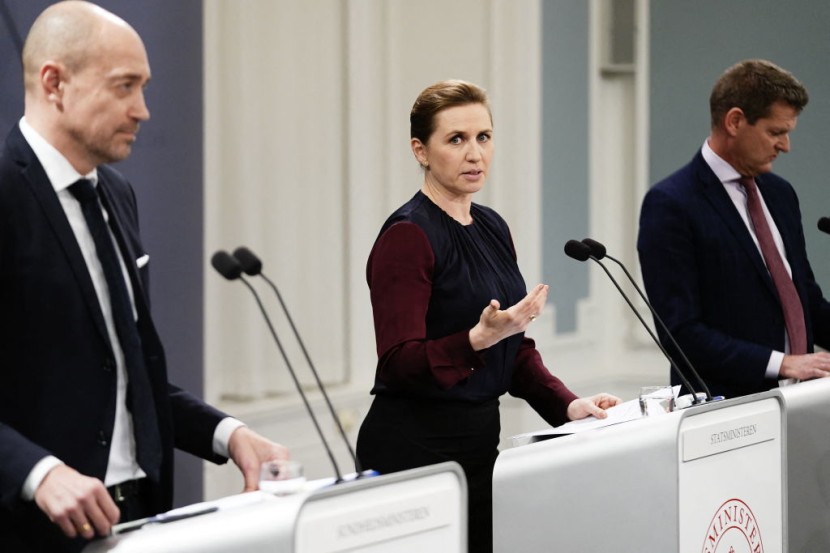
Denmark decided to end most of its restrictions on managing the COVID-19 outbreak as it pushes to go back to a pre-pandemic lifestyle.
On Wednesday, Prime Minister Mette Frederiksen announced that there would be policy changes starting February 1. Denmark would only require wearing protective masks inside hospitals, healthcare facilities, and homes for the aged.
"We say goodbye to the restrictions and welcome the life we knew before," As of Feb. 1, Denmark will be open," Frederiksen announced, per ABC News.
The European country's recent daily COVID-19 cases average were around 46,000, with only 40 people in hospital intensive care units, as reported by Health Minister Magnus Heunicke. He added that the authorities continue their "strong epidemic surveillance" to determine the proper response.
Despite the lifting of constraints, Frederiksen warned that a surge in infections could still be possible, prompting a fourth vaccination shot.
"It may seem strange that we want to remove restrictions given the high infection rates," "But fewer people become seriously ill, "Frederiksen said.
When the COVID-19 pandemic started in 2020, Denmark was among the first countries in Europe to suspend schools and office operations, per Newsweek.
UK Prepares to Treat COVID-19 as Endemic
Following an uneasy but brief return to coronavirus limitations prompted by the highly transmissible Omicron strain, England is returning to "Plan A," which is learning to live with a disease that is almost certainly here to stay.
The government sees that booster shots and antiviral medications can manage the outbreaks due to Omicron's lower severity, though the virus cannot be eliminated.
Last week, the work-from-home scheme ended while mask mandates and COVID-19 passes implemented the previous month will end this week as the country returns to restrictions implemented last July.
According to Reuters, the UK Health Security Agency gears up to a "targeted "and "flexible" response to providing support to vulnerable people instead of imposing nationwide restrictions.
In December, British Prime Minister Boris Johnson was compelled to implement the "Plan B" restriction, which angered some of the members of the parliament. But now, he exhibits a strong political will to get rid of the policy.
"As COVID becomes endemic, we will need to replace legislative obligations with advice and assistance," Johnson told the members of parliament last week, adding that he would let the policy on COVID-19 self-isolation expire in March, or even at an earlier period.
Too Early to Relax Restrictions
However, evolutionary virologist Aris Katzourakis of Oxford University advised leaders to be careful in easing out restrictions as there are endemic diseases that remain contagious and deadly.
"It frustrates me when policymakers invoke the word 'endemic' as an excuse to do little or nothing," he said.
For Matthew Ashton, Director of Public Health at Liverpool City Council, there is still lots of work to do before treating COVID-19 as endemic. He suggested bringing down "disruptions" in the health system first as high infection rates among staff and patients continue to overwhelm hospitals.
"It's about living safely with COVID. It's not just about living with COVID," he said. "I definitely feel like we're on the journey towards living safely with COVID - but I don't think we're there yet."








